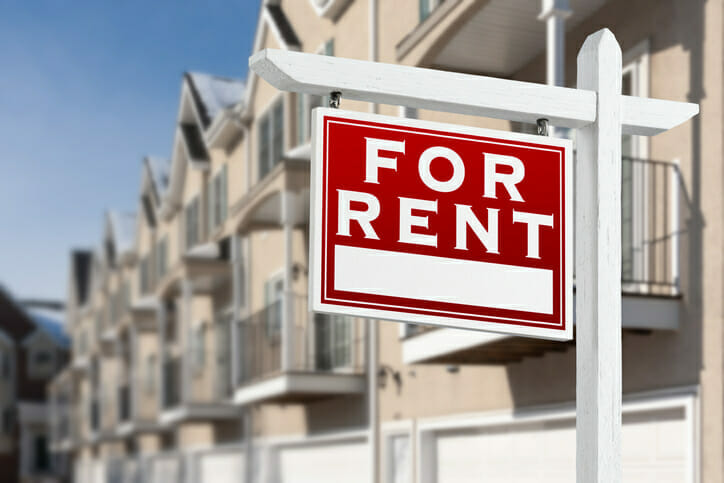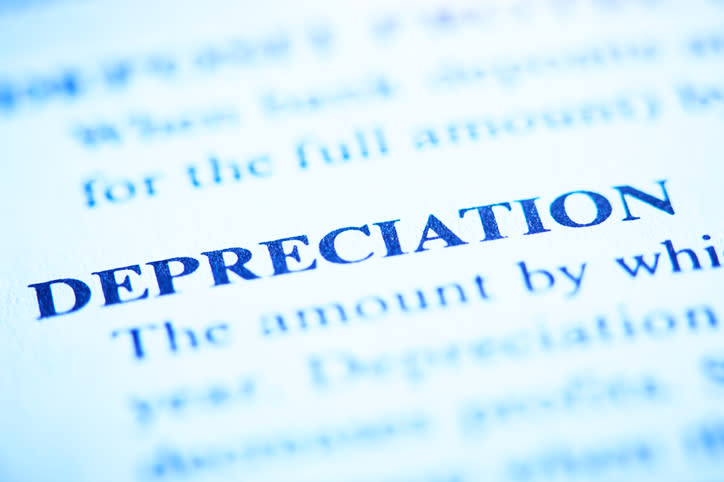You can pay to be responsible Rental property owner. For example, if you are always investing in your rental property and making improvements, not only will your tenants appreciate it and stay for longer, but you can get a depreciation deduction on your taxes. Unfortunately, when the property is sold, depreciation sometimes becomes a migraine for landlords in the form of a depreciation tax recovery. However, you do have options to avoid excise tax refunds. Here’s how.
If you need help with taxes, a financial consultant It can help you create a tax strategy.
What is consumption recovery tax?
Depreciation recovery tax is the difference between the sale value of the rental property and its depreciated value. This is the extra income that will be taxed next time Tax returnafter selling the property.
In other words, the Internal Revenue Service is “recovering” what it considers to be lost taxable income. This is the tax that the IRS collects, assuming the person sold the property for a profit. And also assuming she has taken a depreciation deduction over the years.
How to avoid consumption tax on rental property
If it is important to you to avoid excise tax, there are several strategies you may want to adopt.
-
to benefit from Exception to Section 121 of the IRS. This allows you to exclude up to $250,000 in earnings from the sale of your primary residence if you are single and up to $500,000 if you are married and filing jointly. If you lived in your property for two of the five years before the property was sold (and those years do not have to be consecutive), the property will be considered your primary residence. And all those years of depreciation discounts will be forgotten.
-
procedure a 1031 Exchange. This strategy allows you to defer payment of capital gains tax on the sale of an investment property – provided that the revenue earned is used to purchase another similar property. There are a lot of cumbersome rules to follow in order to profit from this strategy, but it might be worth investigating and discussing with a trader. financial consultant.
-
Transfer of property to your heirs. When your children or grandchildren sell the property one day, they will not inherit a deferred depreciation tax or capital gains tax. They may create their own tax problems, of course, if they rent the property themselves.
-
Selling the property at a loss. It may not be attractive, but it is a way to avoid consumption tax on rental properties.
If you’re ready to connect with local advisors who can help you achieve your financial goals, let’s start.
Why is land not considered a depreciable asset?
IRS policy is that a consumption recovery tax The effects do not affect your land but only your property, such as a house or building. They often depreciate unless they are maintained and improved.
In other words, the IRS treats rental real estate like any other business asset. This can include items such as a delivery truck or a desktop computer. For an apartment building, the IRS allows the property owner to depreciate it over 27.5 years.
To calculate how much you can deduct each year, you divide your holdings cost basis over the useful life of the asset to obtain the annual depreciation amount.
(By the way, that 27.5 is the federal government’s number; if you’re working on calculating an consumption tax refund for your state taxes, you might be working with another number.)
An example of an excise tax refund
Let’s say you buy a house for $300,000 and then have renters who live in it for a decade. After that, you decide to sell the property. divided by 27.5, a Rental property owner He can take a depreciation deduction of $10,909 annually. (This means $300,000 divided by 27.5). After 10 years, if they had sold their property for $500,000, they would have taken $109,090 in depreciation.
In this case, the IRS will tax the remaining $390,910 ($500,000 minus $109,909) at the rate The rate of capital gains is short-term or long-term. This rate ranges from 0% to 37%.
(The percentage the rental owner receives depends on factors such as the landlord’s income, tax bracket, and how long they’ve owned the property.)
The total deduction ($109,090) will be taxed at a refund rate that can be as high as 25%.
Sometimes negligence can cause a tax refund tax bill To be much higher than what the landlord expected. That’s when some people are looking for a way out that can reduce their tax bill. Fortunately, there are some options.
bottom line
For some landlords, the repossession tax likely won’t cause much trouble. But it may be the case for others, especially those in higher tax brackets with valuable assets and plenty of depreciation deductions. However, before making any rash decisions about selling your property or leaving it to beneficiaries, it would be a good idea to discuss your next step with a financial advisor or Licensed Tax Professionalor both.
Tips for calculating your taxes
-
Whether you need help planning for retirement, Estate planningtax planning or investment portfolio organization, a vetted financial advisor can help. Free SmartAsset tool It matches you with up to three financial advisors serving your area, and you can interview your advisors at no cost to determine the right one for you. If you are ready to find a counselor who can help you achieve your financial goals, let’s start.
-
If you do not know if you are better off with Standard discount As opposed to breaking it down, you might want to read it and do some math. You may find that you will save a significant amount of money one way or another. So it is better to educate yourself before Tax return deadline.
Photo credit: ©iStock.com/Feverpitched ©iStock.com/RapidEye ©iStock.com/William_Potter
the post How to avoid consumption tax on rental property appeared first on Smart Asset blog.



